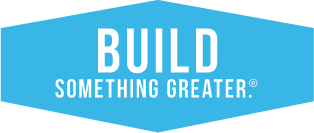Writers ought to be readers.
A friend of mine recently asked in a group chat, “Do you remember the book that made you fall in love with reading?” It took me most of the day to come up with an answer because tracking back through a mental library that’s more than 30 years old is no easy task. In a flash, though, a memory came to me of checking out from the library over and over an I Can Read! book called Sam the Minuteman. Later, it was the Nancy Drew series by Carolyn Keene, Anne of Green Gables by Lucy Maud Montgomery, and Louisa May Alcott’s Little Women. These days, I’m much more into memoirs and great storytellers who tell their own stories.
I became a writer because I was a reader first. Reading made me fall in love with words and the ways that authors can string them together to create whole worlds and themes and meanings. It’s stories that, as Seth Godin offers, get people to change their minds, buy into a new idea, or take a new action.
Stephen King, the novelist who has written more than 70 books and is looked to as an expert on writing, is credited with saying, “If you want to be a writer, you must do two things above all else: read a lot and write a lot.” I find myself thinking about this and how to be a better writer, in large part because I take my work so seriously. Good marketing tells a compelling story that connects with the intended audience. Every client I write for has a different audience for whom each message ought to be tailored, which means I’m writing in different styles with different structures for different needs every day. One of the best ways for me to deliver for our clients is by reading a variety of creative writers who write in different styles, each with the same goal—to create a connection through telling stories.
Over the years, I’ve turned to the experts and their books on the craft time and time again. So, here is my list of the top five books on writing that I think every writer should read.
5. To get better technically: The Element of Style by William Strunk Jr. and E.B. White
Strunk and White’s The Elements of Style is a go-to text in creative writing classes for a reason. Their straightforward advice on composition and structure is incredibly easy to follow, whether you consider yourself a writer or not. While I first read it for a feature writing class in college, it now sits on my desk as more of a quick reference guide as I have questions about grammar and using English well as I do my work. This work is a classic worth having on your shelf.
4. To learn how to tell a better story: On Writing: A Memoir of the Craft by Stephen King
King’s book marries a subject I love (writing) with a genre I love (memoir). On Writing is more or less broken into two parts. The first he calls “CV,” and in it, he simply tells his story. He says, “This is not an autobiography. It is, rather, a kind of curriculum vitae—my attempt to show how one writer was formed.” In the second part of his book he gets into the meat and potatoes of writing: “What Writing Is” and “The Toolbox.” King is, as in his novels, incredibly engaging. And as in his interviews, he’s also incredibly blunt, even saying at one point, “I can’t say there are no bad writers. Sorry, but there are lots of bad writers.” That isn’t to say he leaves a would-be writer hopeless. Indeed, his tone is that of a teacher, and you feel him wanting to help you as you read. So regardless if you like King’s novels, I suspect you’ll like having him as a mentor.
3. To better understand the process of writing: The Writing Life by Annie Dillard
I was introduced to Annie Dillard when I started teaching. We used stories from An American Childhood to show our students the power and meaning that comes with examining and sharing stories of their own experiences. Dillard’s The Writing Life is also written rooted in storytelling, though she certainly emphasizes “the work” of writing more than anything. She likens writing to painting, noting how onlookers only see the finished product of a painting; they don’t see the sketching and the reworking that is the process of getting to the finished piece. For Dillard, and indeed for many who call themselves writers, the process is the whole point. I definitely came to appreciate and respect the process and the work of writing much more after reading this book, especially when I’m right in the middle of it.
2. To better understand writing as art: Big Magic: Creative Living Beyond Fear by Elizabeth Gilbert
Elizabeth Gilbert’s Big Magic isn’t so much a book about writing as it is a book about creativity. It is, quite frankly, a great kick in the pants for those of us who can get stuck because of the fear of failure. Gilbert is herself a writer, best known for her memoir Eat, Pray, Love, so it’s very easy to borrow her perception of the writer as an artist and to think of writing as art. The takeaway for me is that fear is useless in the creative process. Sometimes the point is just to make something, anything, in spite of whatever fear might be lurking.
1. To be better motivated to write: Bird by Bird: Some Instructions on Writing and Life by Anne Lamott
Anne Lamott is one of my favorite writers of all time, and Bird By Bird is one of my favorite books. It’s not only my favorite book on writing, it’s legit one of my favorite books. I’ve probably read it a dozen times since college. I keep going back to it again and again because Anne Lamott feels to me like the Patron Saint of Writers. She is wise and honest and knows what the heck she is talking about, having published both novels and non-fiction books and leading writing workshops for decades. She is quirky, but she is smart. Her book on writing, Bird By Bird, offers really practical advice for getting words onto the page while also reminding us why we do the work we do. Her ability to blend the insights she shares with students in her workshops with her real-life anecdotes is the kind of writing that I aspire to. If there’s only one book on writing you’re going to read, make it this one.
Stephen King is right – ”If you don’t have time to read, you don’t have the time (or tools) to write. It’s as simple as that.” The five books here are a great place to start whether it’s been a while since you’ve put your nose in a book or you’re a writer looking to be re-inspired. I can only hope they become some of your favorites too.









